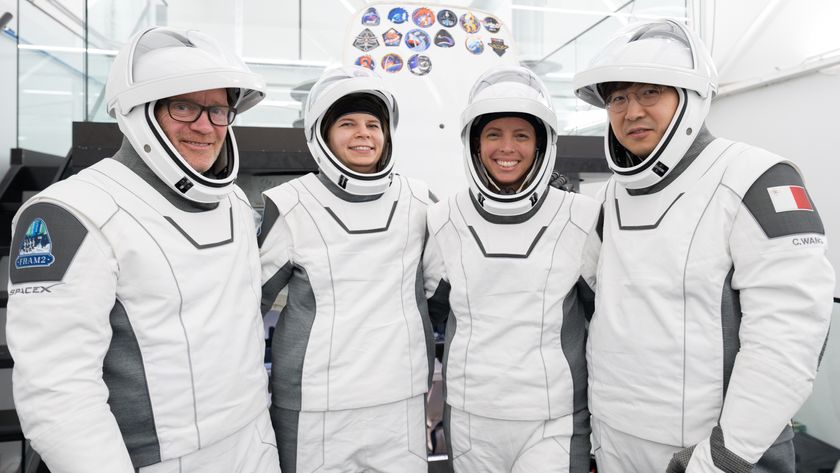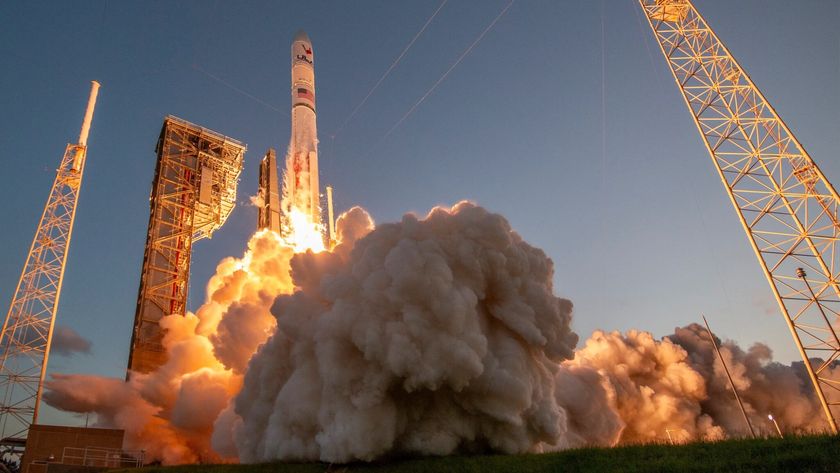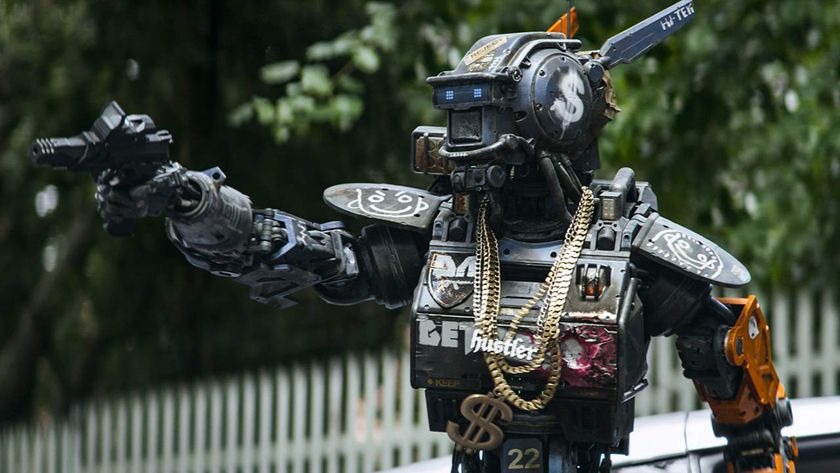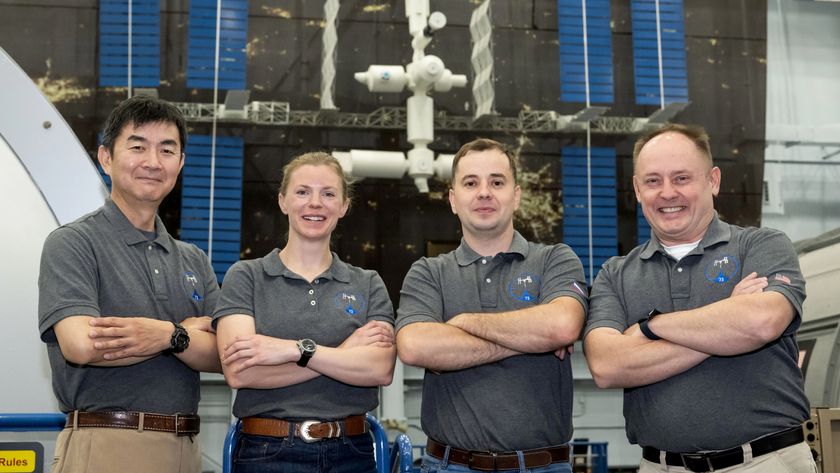Air Force, Contractors Seek Ways To Fight Brain Drain
One of themost frequently cited problems facing those who buildand rely on space systems is a receding pool of engineering talent, a functionof declining interest among young people in math and science.
It is atroubling trend whose impact will be felt increasingly as the currentgeneration of aerospace engineers retires. This has led the U.S. Air Force andits contractors to pursue a variety of programs designed to get the space bugto bite students of all ages.
A number ofsenior military and NASA officials have expressed frustration in recent yearswith the difficulty of attracting young people to careers in space. During anApril 2002 interview, for example, Air Force Gen. Ralph "Ed" Eberhart, thenserving as commander of Air Force Space Command, said he was disappointed tosee a decline in the number of students pursuing aeronautical and astronauticaldegrees.
"I've seena survey that when you ask elementary school students what they are mostinterested in, you get two subjects: dinosaurs and space," said Eberhart, whoretired in 2005. "So someplace between elementary school and degree time, welose these people."
Lt. Gen.Frank Klotz, vice commander of Air Force Space Command, said in an Aprilinterview that Eberhart's observation still holds true today. Space Command hasworked to address this issue through a program called High Frontier Adventures.The program, developed in part by the U.S. Space Foundation of ColoradoSprings, Colo., was launched this past February by Gen. Lance Lord, who retiredas commander of Air Force Space Command a month later.
The HighFrontier Adventures program counts towards a community outreach requirement offour hours a year for credentialed space officers and enlisted personnel.
Under theprogram, space officials visit students ranging from kindergarten through 12thgrade, Klotz said. Rather than give a military recruiting pitch during thesevisits, the officers focus on the scientific and economic importance of spaceto "bring home to the students how ubiquitous and pervasive space has become tothe American way of life," he said.
Get the Space.com Newsletter
Breaking space news, the latest updates on rocket launches, skywatching events and more!
"It's[intended] to spark and kindle and nurture an interest in space writ large,"Klotz said.
In aFebruary visit with fifth and sixth graders at a school near Space Command'sColorado Springs headquarters of Peterson Air Force Base, Lord showed footageof the launch of NASA's Mars Odyssey spacecraft aboard a Delta 2 rocket,discussed the role of math and science in preparing for a launch, and talkedabout the relationship between planets and the Sun.
Accordingto a February Air Force news release, Lord told the students "if you're not inspace, you're not in the race," a line he frequently used to close speeches toindustry audiences and interviews with reporters.
Dave Shingledecker, vice president forstrategic systems at Raytheon Space and Airborne Systems in El Segundo, Calif.,agreed that more needs to be done to sow interest among young students in maththat can lead to a career in aerospace engineering. Through a program calledMath Moves U, Raytheon has enlisted professional athletes and others for eventsdesigned to teach math in a fun setting.
In aFebruary event in El Segundo, the company brought BMX stunt bicyclist DaveMirra and videogame designer Mark Skaggs in to talk about the role of math intheir careers. In one exercise, the students calculated the trajectory neededto safely jump Mirra's bike over six classmates who were lying on the ground.The students also had the chance to try on space suits and control a model of aMars rover, according to Sabrina Steele, a Raytheon spokeswoman.
BAE Systemsalso has worked to stoke an interest in space and engineering in young people,according to Marshal Ward, vice president and general manager of space systemsat BAE Electronics & Integrated Solutions of Nashua, N.H. The company hasworked with the For Inspiration and Recognition of Science and Technology(FIRST) high school robotics competition since 1989, and has sponsored eventsfor the past four years, he said.
The companyalso rotates select young employees through a variety of positions to give themthe experience needed to serve as space leaders, said Ward, a retired Air Forcemajor general who served in posts including director of requirements at AirForce Space Command.
When Ward joinedBAE in 2001 after retiring from the Air Force, he began taking five to sixyoung employees to the National Space Symposium in Colorado Springs each yearto man the company's booth in the conference exhibition hall. To qualify forthe trip, the employees were required to write essays on why they want to beinvolved with space.
The benefitof bringing young employees to the symposium is apparent upon their return,Ward said.
"They getvery motivated, and word of mouth spreads," Ward said. "They come back andteach others -- they are leaders amongst their peers."
Join our Space Forums to keep talking space on the latest missions, night sky and more! And if you have a news tip, correction or comment, let us know at: community@space.com.
Jeremy Singer is a former journalist who specialized in stories about technology, including cybersecurity, medical devices, big data, drones, aerospace and defense. He now works as head of communications at Morse Corp, a company that creates algorithm development, software development and system integration services to solve issues in the aerospace industry.












